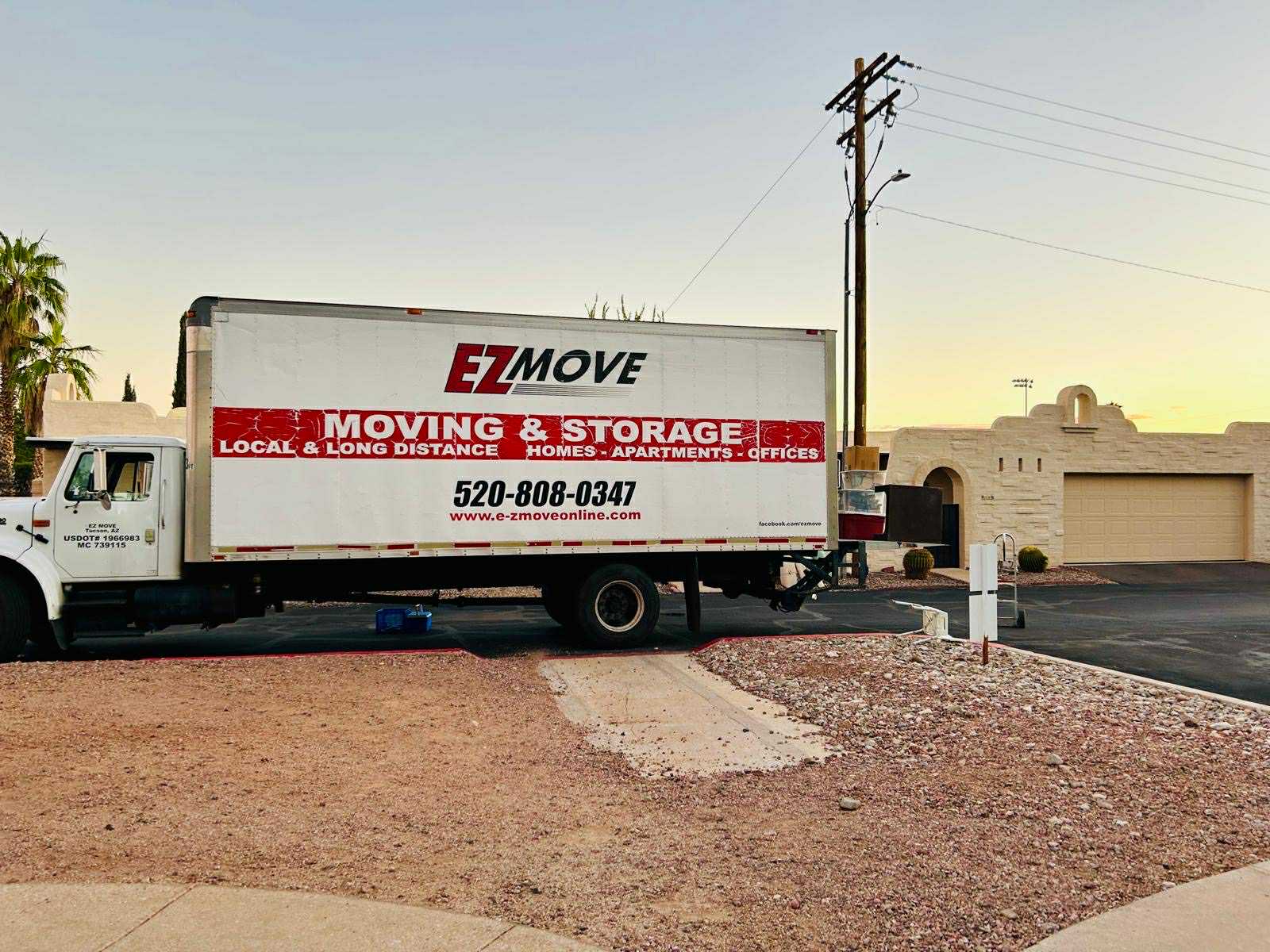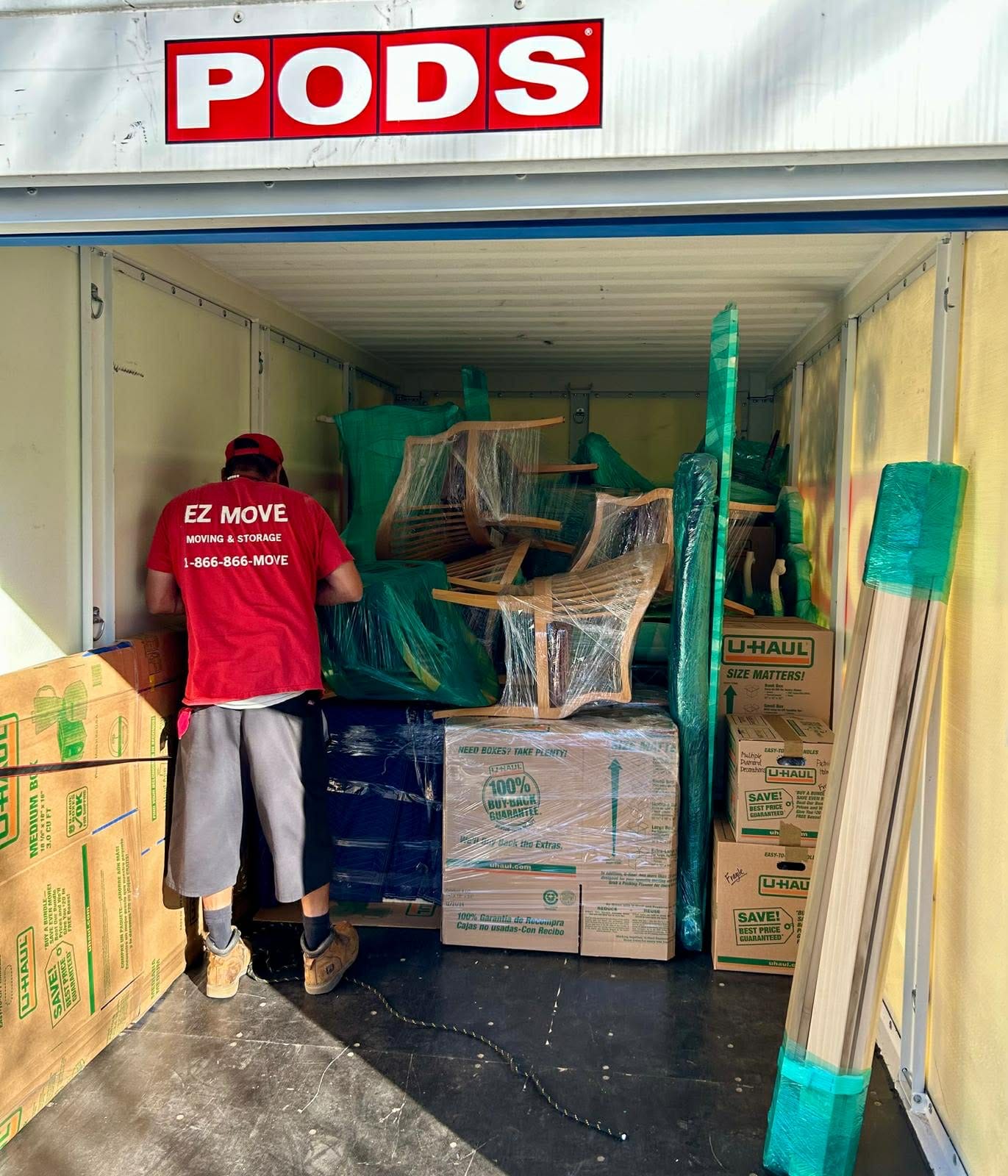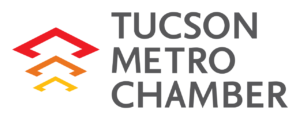Relocating your business can feel overwhelming, especially when you’re concerned about maintaining operations and keeping your team productive. The key to a successful office move lies in choosing experienced professionals who understand the unique challenges of commercial relocations. When you’re planning your next business move in the Tucson area, partnering with E-Z Move ensures your transition happens smoothly while protecting your bottom line.
Business relocations require careful coordination, specialized equipment, and experienced teams who can handle everything from sensitive electronics to heavy office furniture. The right moving company will work around your schedule, minimize disruptions, and get your team back to work as quickly as possible.
Understanding the Complexity of Commercial Relocations
Office moves present unique challenges that residential relocations simply don’t encounter. Your business likely contains expensive computer equipment, servers, filing systems, and specialized machinery that require careful handling and precise placement. Additionally, you’re working with tight timelines, employee schedules, and the need to maintain customer service throughout the transition.
The complexity extends beyond physical items. You’ll need to coordinate with building management at both locations, arrange for utility transfers, update your business address across multiple platforms, and ensure compliance with any industry-specific regulations. These moving parts require professional oversight to prevent costly delays or damage.
Professional commercial movers bring expertise in handling sensitive documents, electronics, and office furniture. They understand building access requirements, elevator reservations, and loading dock protocols. This knowledge becomes invaluable when you’re working within the constraints of a busy commercial building.
Time management becomes critical during business relocations. Every hour of downtime represents lost productivity and potential revenue. Professional movers develop detailed timelines that account for packing, transportation, setup, and testing of equipment at your new location.
Strategic Planning for Your Business Move
Successful office relocations begin months before moving day. Start by conducting a comprehensive inventory of all equipment, furniture, and supplies that need relocation. This process helps you identify items that might need special handling, replacement, or disposal before the move.
Create a detailed floor plan of your new office space. This planning allows you to determine furniture placement, equipment positioning, and workflow optimization before moving day arrives. Share this information with your moving team so they can position items correctly from the start, reducing the need for rearrangement later.
Establish a communication strategy for employees, customers, and vendors. Your team needs clear information about packing responsibilities, moving timelines, and their role in the process. Customers should receive advance notice of any potential service interruptions, while vendors need updated contact information and delivery instructions.
Consider the timing of your move carefully. Weekend relocations often work well for businesses that operate Monday through Friday, while some companies prefer phased moves that happen over several days or weeks. Your moving professionals can help you evaluate options based on your specific needs and constraints.
Budget planning should account for more than just moving services. Factor in potential overtime costs for employees, temporary storage if needed, updated business cards and marketing materials, and any equipment that might need professional reinstallation at your new location.
Essential Services for Office Relocations
Professional office moving companies offer specialized services designed specifically for business relocations. These services go far beyond simple transportation and can make the difference between a chaotic move and a seamless transition.
Packing services for offices require different materials and techniques than residential moves. Important documents need secure, labeled containers that prevent loss or damage. Computer equipment requires anti-static materials and custom cushioning. Professional packers understand these requirements and come equipped with appropriate supplies.
Furniture disassembly and reassembly services ensure that conference tables, workstations, and modular furniture systems are properly taken apart, transported, and reconstructed at your new location. This service prevents damage during transport and ensures everything functions properly in your new space.
Electronics handling requires special attention to prevent data loss or hardware damage. Professional movers use proper techniques for disconnecting, transporting, and reconnecting computer systems, servers, and telecommunications equipment. They can also coordinate with your IT team to ensure systems are properly backed up before the move.
Storage solutions provide flexibility when your move-out and move-in dates don’t align perfectly. Climate-controlled storage protects sensitive equipment and documents while giving you time to properly prepare your new space.
Technology and Equipment Considerations
Modern offices rely heavily on technology that requires careful handling during relocations. Servers, computer networks, phone systems, and specialized equipment all need professional attention to prevent costly damage or data loss.
Coordinate with your IT department or service provider well before moving day. Systems should be properly backed up, and you’ll need a plan for reconnecting everything at your new location. Some equipment may need professional recalibration or setup after the move.
Consider the infrastructure requirements of your new space. Internet connectivity, phone lines, and electrical systems all need to be ready before your equipment arrives. Work with your moving team to schedule these installations appropriately.
Sensitive equipment often requires climate-controlled transportation. Temperature and humidity fluctuations can damage electronics, so ensure your moving company has appropriate vehicles and handling procedures for your most valuable equipment.
Label all cables and connections before disconnection. This simple step can save hours of troubleshooting when setting up equipment at your new location. Professional movers can assist with this process and provide detailed documentation of how systems were connected.
Employee Coordination and Communication
Your employees play a crucial role in the success of your office move. Clear communication and defined responsibilities help ensure everyone understands their part in the process while minimizing confusion and stress.
Assign packing responsibilities well in advance. Personal workspace items, desk contents, and individual files are often best handled by the employees who use them daily. Provide proper packing materials and clear guidelines about what should be packed versus what will be handled by professional movers.
Create a moving day schedule that outlines when different departments or areas will be packed and moved. This timeline helps employees plan their work and ensures they can continue being productive right up until their area is ready for packing.
Consider designating moving coordinators from different departments. These individuals can serve as points of contact with the moving team and help address questions or concerns from their colleagues throughout the process.
Address concerns about the new workspace early in the planning process. Employees may worry about commute changes, parking availability, or workspace assignments. Proactive communication helps maintain morale and productivity during the transition.
Protecting Your Business Assets
Office moves involve valuable equipment, important documents, and sensitive information that require special protection throughout the relocation process. Professional moving companies understand these concerns and implement specific measures to safeguard your business assets.
Comprehensive insurance coverage should protect your equipment and furniture during the move. Understand what’s covered under your moving company’s insurance and consider additional coverage for particularly valuable items. Document the condition of expensive equipment before the move with photographs and detailed notes.
Secure handling procedures are essential for confidential documents and sensitive information. Professional movers can provide locked containers and maintain chain of custody documentation for important papers. Consider whether any documents need to be transported separately by company personnel rather than with the general office contents.
Inventory management becomes critical during business moves. Detailed lists help ensure nothing gets lost in transit and make it easier to set up your new space efficiently. Professional movers typically provide inventory services as part of their comprehensive moving packages.
Quality control measures should be in place throughout the moving process. This includes proper packing techniques, appropriate vehicle loading, and careful handling at both locations. Experienced commercial movers understand these requirements and implement procedures to minimize the risk of damage or loss.
Timeline Management and Scheduling
Effective timeline management can mean the difference between minimal business disruption and costly extended downtime. Professional office moving services work with you to develop realistic schedules that prioritize getting your business operational as quickly as possible.
Pre-move activities typically begin several weeks before your actual moving date. This phase includes space planning, utility coordination, packing of non-essential items, and preparation of your new location. Starting early allows you to address unexpected issues without impacting your moving timeline.
Moving day execution requires careful coordination between multiple teams and service providers. Your moving crew needs access to both buildings, elevator reservations may be required, and you’ll need to coordinate with building management at both locations. Professional movers handle these logistics as part of their service.
Post-move setup often takes longer than expected. Factor in time for equipment testing, network configuration, and workspace organization. Some businesses find it helpful to schedule their move to end on a Friday, giving them the weekend to address any issues before the next business day.
Contingency planning helps you prepare for unexpected delays or complications. Weather, building access issues, or equipment problems can all impact your timeline. Having backup plans in place reduces stress and helps keep your move on track.
Cost Considerations and Budget Planning
Business relocations involve various costs beyond basic moving services. Understanding all potential expenses helps you budget appropriately and avoid surprises during your move.
Moving service costs typically depend on factors like distance, volume of items, special handling requirements, and timeline constraints. Weekend and after-hours moves may cost more but could be worth the investment if they minimize business disruption.
Additional services like packing, furniture disassembly, electronics handling, and temporary storage all add to the total cost. However, these services often prove cost-effective when you consider the time and potential damage they help you avoid.
Business disruption costs can be significant if your move takes longer than expected. Lost productivity, overtime wages, and potential customer service issues all impact your bottom line. Investing in professional moving services often pays for itself by minimizing these hidden costs.
Planning expenses should include items like updated marketing materials, new signage, utility deposits, and any renovations needed at your new location. Creating a comprehensive budget helps ensure you’re financially prepared for all aspects of your relocation.
Choosing the Right Moving Partner
Selecting the right moving company for your office relocation requires careful evaluation of experience, services, and reputation. The wrong choice can result in damaged equipment, extended downtime, and unnecessary stress for your entire organization.
Experience with commercial relocations should be a primary consideration. Office moves require different skills and equipment than residential relocations. Look for companies that regularly handle business moves and understand the unique challenges involved.
Licensing and insurance verification protects your business from liability and ensures you’re working with a legitimate company. Professional moving companies should carry appropriate insurance coverage and maintain proper licensing for commercial relocations.
References from other businesses can provide valuable insights into a moving company’s performance. Ask about their experience with similar moves, how well the company met deadlines, and whether they would recommend the service to other businesses.
Service offerings should align with your specific needs. Some companies specialize in certain types of businesses or offer particular services that might benefit your relocation. Make sure your chosen company can handle all aspects of your move or can coordinate with other service providers as needed.
Moving your business doesn’t have to disrupt your operations or stress your team. With proper planning, professional services, and experienced partners like E-Z Move, your office relocation can proceed smoothly while minimizing downtime and protecting your valuable business assets. The investment in professional moving services typically pays for itself through reduced downtime, prevented damage, and the peace of mind that comes with knowing your move is being handled by experienced professionals.
For more information about business moving best practices and regulations, visit the Federal Motor Carrier Safety Administration website, which provides comprehensive guidance on commercial moving services and regulations.



